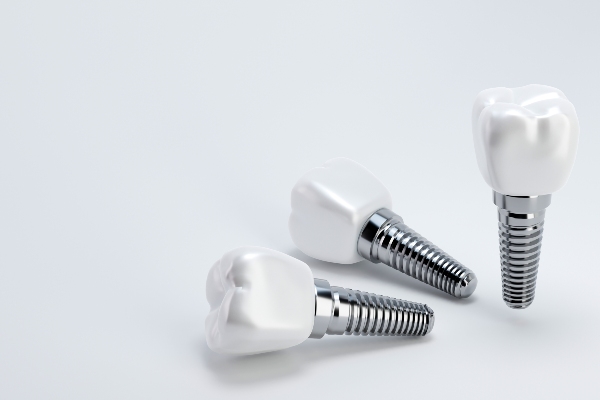Seek an Emergency Dentist After a Dental Injury

Medical hospitals are often unequipped to handle dental emergencies; this is when an emergency dentist becomes necessary. Recognizing the signs of a dental emergency is important for patients to get the help they need right away. Once patients know they are dealing with a dental emergency, they can look up “emergency dentist near me” instead of going to the ER. It is important that dental emergencies are handled right away so that they do not become bigger issues.
What are the signs of a dental emergency? Some concerns may be more apparent than others. This article will outline several different types of dental emergencies so patients can find out if what they are dealing with is, in fact, a dental emergency and they need a dentist right away. It is important that people have a clear understanding of a dental emergency so that they do not put off seeking help right away.
Loosened or knocked-out teeth
Everyone knows that adults are not supposed to lose teeth as children do. If a person notices that one of their teeth has become loose, it may be a sign of tooth or gum injury. Sometimes, a loose adult tooth could indicate nerve damage, which does not always cause pain or discomfort right away.
Teeth that become loose due to trauma to the mouth from something like an accident or a sports injury should also be considered an emergency. Although the person may not feel severe pain, a knocked-out tooth can lead to more dental issues down the line. For example, surrounding teeth may begin to shift into that vacant space over time, and this causes misalignment of the teeth and jaw.
If a person notices loose teeth, even if pain is not present, they should consult a dentist right away to learn how they should handle the next steps for treatment. How the tooth became loose will likely determine how it should be treated and whether or not it is an emergency.
Broken, chipped, or cracked teeth
Sometimes, mouth trauma causes a tooth to break, chip, or crack. Even a minor crack or chip can cause complications such as fever, sensitivity in the affected tooth or gums, swelling in the gums, and even pain that spreads down into the neck.
There are a number of procedures a dentist can perform to fix a broken, chipped, or cracked tooth before the condition gets worse. If the crack is minor, a dentist may be able to bond the tooth or cover the damaged area with a dental crown. In more severe cases, it may be necessary to perform a root canal or extraction in order to prevent nerve or root damage.
Severe toothache or gum pain
A severe toothache can be a symptom of several dental issues, such as an undetected crack or tooth decay. A dental abscess can also cause tooth pain. Dental abscesses develop when bacteria grow in the tooth, often starting in a cavity and spreading to the soft tissues and sometimes even into the bones of the face and neck.
Lingering pain in the gums or bleeding when flossing or brushing is usually a sign of gum disease that should be treated right away. Mild gum disease can be treated more simply.
Broken jaw
For a broken jaw, patients will need to go to the hospital for it to be evaluated, but an emergency dentist will be who treats it. If the patient develops symptoms like a swollen tongue that makes it hard to breathe, go to the nearest emergency room.
It is important to get a broken jaw properly treated because letting it heal on its own can cause misalignment and make it harder to chew and speak.
Bitten tongue or lip
If a person finds that the bleeding from a bitten tongue or lip does not stop after 15 minutes of applied pressure, call a dentist. If the dentist finds that the laceration is severe, they may refer the patient to the emergency room for additional help.
Seek help for dental emergencies
If a person is unsure if their dental issue is an emergency, it is always a good idea to seek the guidance from professionals. Contact a dentist right away to learn if the situation warrants a visit to the ER or if a simple in-office visit will do. Handling emergencies quickly and effectively ensures proper healing and recovery for the patient.
Request an appointment here: https://ericlarsondds.com or call Eric A. Larson DDS at (801) 871-8983 for an appointment in our Salt Lake City office.
Check out what others are saying about our dental services on Yelp: Emergency Dentist in Salt Lake City, UT.
Related Posts
An emergency dentist is usually a general dentist who has the staff, resources, hours, and willingness to treat dental emergencies. A dental emergency may include a range of mouth injuries or developing oral health concerns. It can be helpful to fully understand when to see an emergency dentist for prompt treatment.When an individual has an…
Visiting the dentist can be an anxiety-inducing event for many people. The biggest reason for this is that general dentistry appointments are often associated with painful procedures and a perceived loss of control as you lay back and let the dentist and dental assistant perform their duties. It might also be possible that you are…
A general dentist can relieve a toothache after a proper assessment. This type of dental problem is often accompanied by swelling. It may even occur with a migraine, fever, or earache. Tooth pain needs immediate treatment. Here are the details on what a general dentist can do for a toothache.Each toothache is different. That is…
Our general dentist can help reduce the effects of teeth grinding, also known as bruxism. Most people who grind their teeth tend to be unaware of their habit because it mainly occurs during sleep. Grinding your teeth occasionally due to being anxious or stressed out typically does not cause noticeable damage to teeth, but doing…


